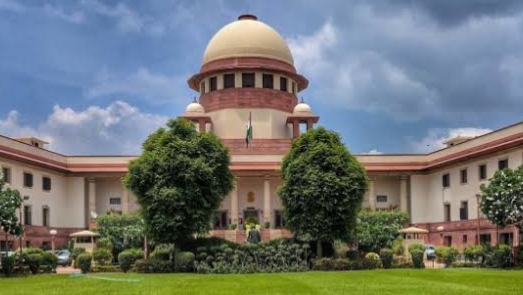Rehan Khan
On 17th October, the Supreme Court of India initiated hearings on a significant batch of petitions aimed at addressing the criminalization of marital rape. The petitions challenge the constitutionality of Exception 2 to Section 375 of the Indian Penal Code (IPC) and its successor provision under the Bharatiya Nyaya Sanhita (BNS), Section 63. These provisions currently exempt non-consensual intercourse between a husband and wife from the definition of rape, provided the wife is not under the age of 18.
The petitioners, led by Senior Advocate Karuna Nandy, argued that this exception is a clear violation of a woman’s fundamental rights under Articles 14, 19, and 21 of the Constitution. Nandy, representing the All-India Democratic Women’s Association (AIDWA) and other individuals, emphasized that the issue is not about “women versus men” but rather about “people versus patriarchy.” She further asserted that the exception reduces a wife to a “mere sexual object,” infringing on her constitutional rights to equality, dignity, and freedom of expression.
The case is being heard by a three-judge bench comprising Chief Justice of India (CJI) DY Chandrachud, Justice JB Pardiwala, and Justice Manoj Misra. During the proceedings, Justice Pardiwala raised concerns about the potential implications of criminalizing marital rape. He asked Nandy to address the scenario where a wife might file an FIR against her husband after declining his sexual advances. In response, Nandy clarified that marital rape is not about creating a new offence but rather removing an arbitrary and discriminatory exception that unjustly shields husbands from being prosecuted for rape.
She underscored that the current exception hinders a wife’s right to express her consent freely, as she is reduced to a legal subject without autonomy over her own body. Nandy eloquently stated, “Currently, my right to say no takes away my right to also say a free and joyful yes.”
The debate took a deeper turn when the bench questioned whether Section 63(b) of the BNS, which defines various sexual acts, could be interpreted to cover acts of rape under the exception. The Court raised the concern that if a husband forces his wife to have sex with another man, this too would be exempted under the current law. In response, the petitioners argued that the existing provisions were not exhaustive and needed to be read more broadly to ensure that all forms of non-consensual sexual acts within a marriage are recognized as rape.
During the deliberations, Justice Pardiwala pointed out that while the exception exempts the husband from rape charges, it does not absolve him of other offenses such as wrongful confinement or grievous hurt. He remarked, “We are creating a situation where the husband can be prosecuted for grievous hurt or abuse, but not for the final act of rape.” This highlighted the contradiction in the law, where a husband could be held liable for multiple violent acts but not for marital rape itself.
Another crucial point raised by the petitioners was the lack of intelligible differentia in the harm suffered by a married versus unmarried rape victim. Nandy emphasized that the trauma faced by a woman repeatedly raped by her husband is no different from that faced by a woman raped by a stranger or separated husband. She argued that the exception stems from an outdated colonial doctrine, known as Hale’s Principle, which assumed that a wife irrevocably consents to sexual relations with her husband upon marriage. This principle, originating in 18th century England, has long been abandoned by most modern legal systems, including England itself.
The Indian government, represented by the Union of India (UOI), has opposed the criminalization of marital rape. In its affidavit, the UOI stated that while consent is a fundamental aspect of marriage, there are already existing legal remedies under the Domestic Violence Act and other laws that protect women from sexual violence. The government further argued that the issue requires a “holistic approach” with consultation from all states, as it is more of a social issue than a purely legal one.
Notably, Senior Advocate Colin Gonsalves, appearing for another petitioner, highlighted how Nepal’s decision to criminalize marital rape did not undermine the institution of marriage but instead protected it from abuse. He pointed out, “In Nepal, criminalizing marital rape has strengthened the sanctity of marriage, ensuring that violence and rape have no place within it.”
As the hearing continues, the Supreme Court will consider various aspects of this complex issue, including the Delhi High Court’s split verdict, Public Interest Litigations (PILs), and a Karnataka High Court judgment, which previously sustained charges of marital rape against a husband. The outcome of this case could significantly alter the legal landscape surrounding marital rights and sexual consent in India.
The hearing will be resumed on next Tuesday, 22nd October.
Case Title: Hrishikesh Sahoo v. State of Karnataka and Ors.
Case Number: SLP(Crl) No. 4063-4064/2022- (and connected cases)
Bench: Chief Justice of India (CJI) DY Chandrachud, Justice JB Pardiwala, and Justice Manoj Misra

